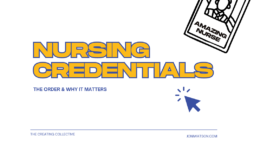The Article: Black, K. (2007). Health care professionals’ death attitudes, experiences, and advance directive communication behavior. Death Studies, 31: 563-572.
Big Idea: Healthcare professionals have been required to inquire about advance directive creation of all adults since the passage of the Patient Self-Determination Act of 1991. However, healthcare professionals’ personal attitudes toward death and dying may influence advance direction communication behavior. Dr. Black surveyed 135 healthcare professionals – 74 nurses, 32 physicians, and 29 social workers – about their attitudes toward death and their advance directive communication and behavior.
Survey Says!: Utilizing two different tools, the author found numerous correlations among healthcare professionals’ death and dying beliefs and self-reported advance directive communication behavior. For example, healthcare professionals more accepting of death and having a positive view of afterlife initiated more advance directive conversations with patients than their counterparts. Similarly, professionals experiencing the death of a close friend or family member within the past year reported sharing more advance directive information with patients, likely as a personal coping mechanism. Conversely, professionals with a negative or fearful view of death were less likely to collaborate with colleagues and engage in advance directive discussions.
Quotable: “Research suggests that inadequate professional training regarding death and dying is a barrier for effective practice in this area for physicians [references], nurses [references], and social workers [references]” (p.564).
So What? Dr. Black does mention the study results should be interpreted with caution as the response rate was low and self-report is subject to bias. However, this study does suggest healthcare providers’ personal views of death do impact advance directive discussions with patients and families. Healthcare professionals should be aware of their beliefs and attitudes of death and dying to better discuss and facilitate advance directive creation.





